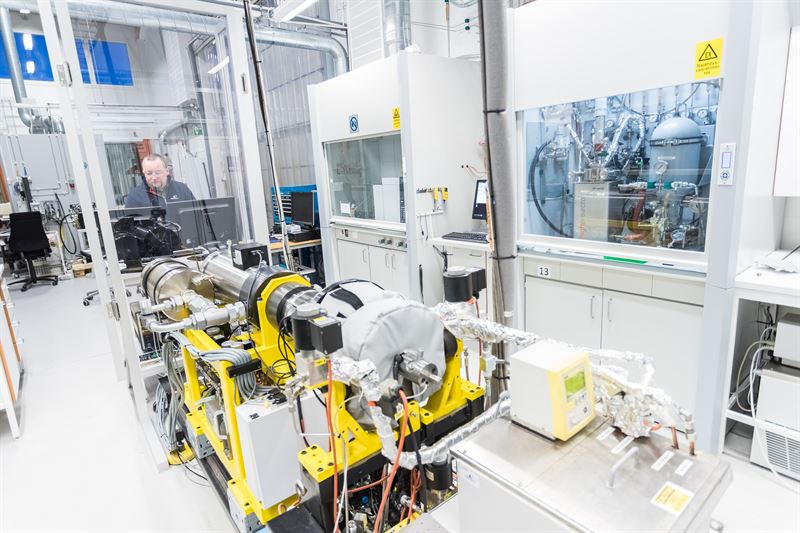Wärtsilä to coordinate EU-funded program for ammonia engine development
By Julian Atchison on April 06, 2022
Accelerating ammonia engine development

Coordinated by Wärtsilä, the R&D group includes C-Job Naval Architects, DNV, the Mediterranean Shipping Company and the National Research Council of Italy. The EU has provided €10 million for the program via the Horizon Europe initiative.
Aiming to build on Wärtsilä’s testing results to date, the program outcomes include:
…a lab-based demonstrator for the four-stroke ammonia engine, and a lab-based test engine followed by a vessel retrofit for the two-stroke version by 2025. As well as advancing the engine concepts, the Ammonia 2-4 project will further develop concepts around fuel handling and safety as well as contributing inputs towards a regulatory framework for ammonia.
Ammonia 2-4 project outcomes, from Wärtsilä’s press release, 5 Apr 2022
Thanks to the project set-up, we’ll be able to show the application of ammonia as a marine fuel for both ships using fuel direct configurations and ships using fuel electric configurations. We’re excited to take this next step and apply our knowledge and experience in Ammonia 2-4 together with our partners.
Lead Naval Architect at C-Job Naval Architects, Niels de Vries in Wärtsilä’s press release, 5 Apr 2022
Other Wärtsilä developments
- work continues preparing Wärtsilä’s ammonia-powered, 4000HP test engine at the Stord research facility. Learn more details about the R&D logistics and the engine itself here (Norwegian language).
- Wärtsilä will provide technical guidance to Solstad Offshore in their push to decarbonise operations. Solstad are aiming to achieve a 50% reduction in their CO2 emissions by 2030.
- Wärtsilä and the Mediterranean Shipping Company are working towards the development, launch & demonstration of a “conversion solution” to allow two-stroke engines to run on future fuels like ammonia. The pair aim to complete their first commercial engine conversion by mid-2023.